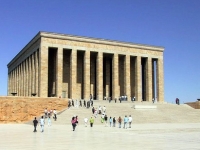
A revered monument in the city accessed by a wide avenue lined with lion statues, Anitkabir is the mausoleum of the founder of the Turkish Republic, Ataturk. It draws Turks from all over the country who come to pay their respects to their hero. It is also a fascinating attraction for visitors to Ankara, its stark but imposing colonnaded aspect giving onto a courtyard which contains a museum. The ceiling of the main hall is decorated with beautiful gold leaf mosaics, and there are plenty of reliefs and statues to be admired.
Address : Mebusevleri Mh., Çankaya/Ankara, Turkey.
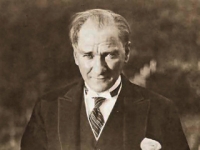
When the founder of the Turkish Republic, Ataturk, died in 1938, he was buried in the courtyard of the building which now houses the Ethnographic Museum. Although he was moved to his final resting place at the imposing Mausoleum in Ankara, the museum is still well worth the visit. Guarded by an imposing bronze statue of the national hero astride his horse, inside is contained a vast collection of historical artefacts that include costumes, arts, and crafts.
Address : Talat Paşa Bulvarı,Türkocağı, Sokak, No:4 Opera, Sıhhiye, Ankara.
E-mail : [email protected]
Website : www.etnografyamuzesi.gov.tr
Telephone : +90 312 311 30 07
Opening times : Daily except Monday 8:30am-12:30pm, and 1:30pm-5:30pm
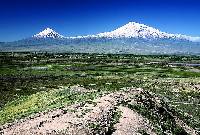
In the far east of Turkey lies Mount Ararat, the twin peaks of this dormant volcano boast the highest summit in the country and legend has it that the remains of Noah's Ark lie on the snow-capped slopes. Many tours are available to climb or even ski Mount Ararat, with solo climbing without a guide and permit not permitted. The climb to the top is relatively easy and requires a basic level of fitness, but is suitable for non-professional climbers. For those not wishing to climb Mount Ararat, the local Kurdish villages situated on the foot of the mountain can be a great cultural experience while the nearby town of Dogubayazit provides stunning views of the mountain and is home to the second largest meteor crater in the world. Noah's Ark National Park at Mount Ararat is home to a museum dedicated to what is believed to be the fossilised remains of the ark.
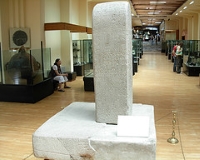
The museum which charts the history of Asia Minor is housed in a lovely 15th-century restored building close to the centre of Ankara. Originally a market and caravanserai close to the centre of Ankara, it's the ideal place to visit for anyone intending to travel through Turkey and delve into the past. It is filled with fascinating collections of archaeological finds, from monolithic statues to delicate jewellery, including some from Catal Huyuk, believed to be the earliest known human social community in the world. From the Palaeolithic and Neolithic, and through all the great civilizations since, this museum is like a time machine for ancient history buffs.
Address : Kale Mh., Gözcü Sk. No:2, Ulus/Altındağ/Ankara, Turkey.
E-mail : [email protected]
Website : www.anadolumedeniyetlerimuzesi.gov.tr
Telephone : +90 312 324 31 60
Opening times : Daily from 8.30am to 4pm.
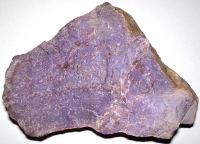
Anyone with an interest in the natural world will enjoy Ankara's Natural History Museum, which contains some fascinating exhibits and dioramas detailing the (often extinct) wildlife of Anatolia, as well as a large collection of fossils and minerals. Most interesting are the fossilized footprints of humans who walked the Anatolian steppes 25,000 years ago, and the skeleton of a Maras elephant which lived in the area 193 million years ago.
Address : Eskişehir Yolu Balgat, Ankara.
Telephone : +90 312 287 3430
Opening times : Weekdays 9.30am-5.30pm.

The Roman Temple of Augustus was built by the Romans in the 2nd century AD, and contains the best-preserved copy of Emperor Augustus' last will and testament, inscribed on the vestibule walls. After the death of Augustus in 14 AD, a copy of the text of the Res Gestae Divi Augusti was inscribed in Latin on both walls inside the pronaos, with a Greek translation on an exterior wall of the cella. The inscriptions are the primary surviving source of the text, since the original inscription on bronze pillars in front of the Mausoleum of Augustus in Rome has long been lost, and two other surviving inscriptions of the text are incomplete. The temple itself is in ruins and not open to the public, but together with other Roman ruins in the vicinity (including the Roman baths and the column of Julian) it is an exciting port of call for classical history addicts.
Address : Hacı Bayram Mahallesi, Altındağ/Ankara, Turkey.
Opening times : Daily, 6am-11pm.

Travel Guide powered by Word Travels, copyright © 2023 Globe Media Ltd. By its very nature information in this travel guide is subject to change at short notice and travellers are urged to verify information on which they're relying with the relevant authorities. Neither Globe Media Ltd nor Travel Vogue can accept any responsibility for any loss or inconvenience to any person as a result of information contained above.